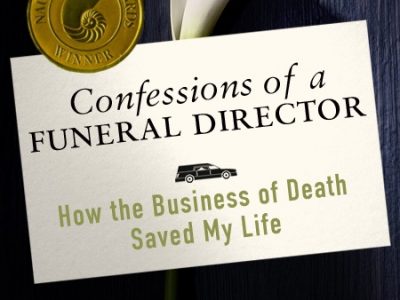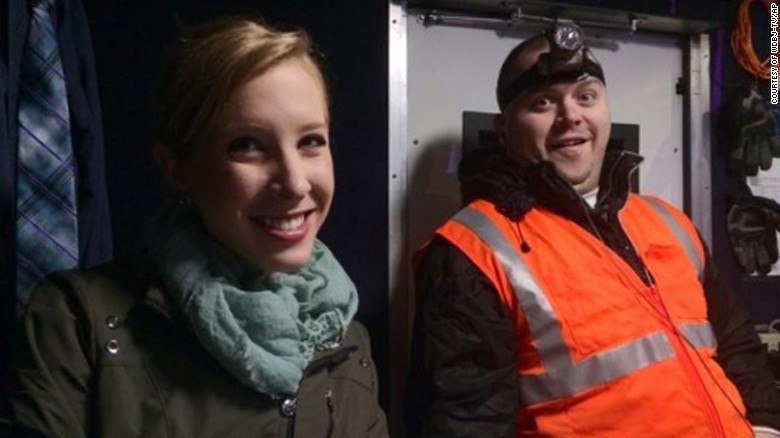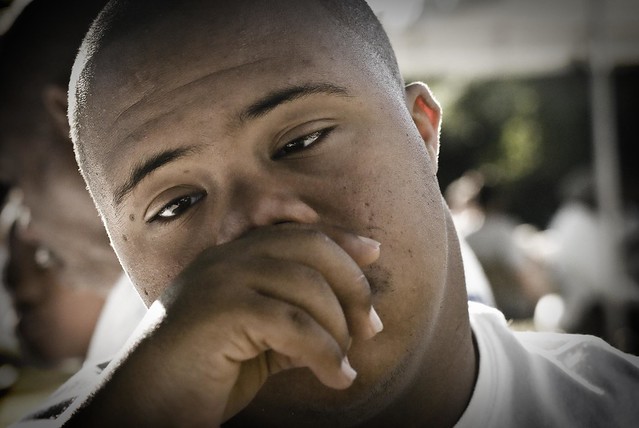Miscarriage and the Confusion of Sinful Grief: A Response
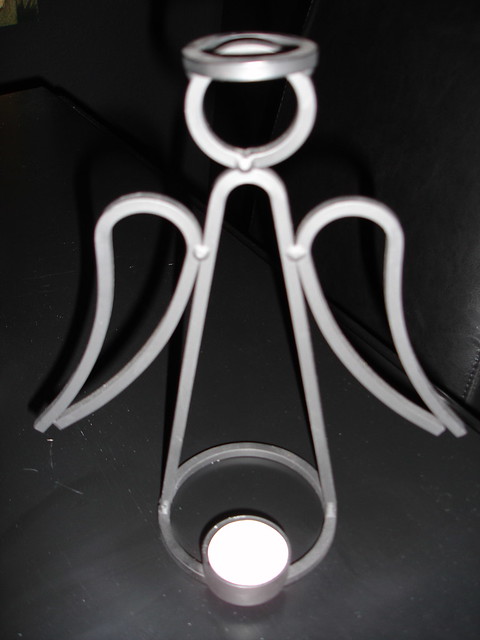
© 2007 Melissa Doroquez, Flickr | CC-BY-SA | via Wylio
I stumbled upon an article entitled Miscarriage and the Confusion of Sinful Grief that was posted at the Reformed Christian website “The Gospel Coalition”.
Jamie Carlson (who recently miscarried) wrote the post as a reflection on sin and grief. Here’s a quick except from her post:
After my miscarriage, it hit me—grieving and sinning go together. Perhaps the most confusing and ongoing part of miscarriage recovery was fighting temptation and rooting out the sins laid bare by suffering. Grief came as expected, but the intensity of emotions made it so difficult to distinguish temptation and sin from grief that I was paralyzed—unable to move forward toward healing.
Jamie continues by stating that soon after she miscarried, a number of her friends started announcing their pregnancies. She classifies her reactions of jealousy, annoyance, anger and minimization to such announcements as “sin”, as something inherently wrong.
Part of me is sensitive to Jamie’s situation. My wife and I often experienced similar feelings of jealousy after we came to the realization that we were infertile. It was hard to share in another person’s pregnancy announcement when we knew we could never conceive.
And while I respect Jamie and her attempt to overcome her feelings of jealousy and anger towards other expecting mothers, I think it should be made absolutely clear that grief is NEVER inherently wrong.
As much as I disagree with Jamie’s basic idea that “sinning and grieving” go together, we should understand that we DO stupid things when we grieve. And there ARE healthy ways to grieve and unhealthy ways to grieve. Not every response to grief is good. Not every way of handling grief is healthy.
But the conversation becomes really convoluted when we shift our talk about grieving from “healthy grief vs. unhealthy grief” to Jamie’s language that points to “holy grief vs. sinful grief.”
Healthy grief is always messy, disorganized, and full of new, raw emotions. Healing a wound involves blood, scabs, stitches, bandages and other less desirable devices. Same with healing from grief (although I’m not sure we ever really heal from grief). There are healthy ways of healing a wound and there’s unhealthy ways. To think, though, that those unhealthy ways are sinful only adds another burden to the already burdened soul of the bereaved.
Associating grief with sin encourages our strong tendency for people to hid their grief. It’s culturally normal for us to repress our thoughts, our tears, our emotions to the detriment of our healing. Imagine how much more we’d repress our thoughts, our tears, our emotions if we thought such things were boarding sinful?
Grief must be shared. It must be talked about. And it should never be hidden like it’s some ugly sin.
I hope Jamie finds healing. And I hope she finds friends who let her share her very normal, very human and very messy grief.
When you Only Find a Piece of Your Loved One

© 2010 SDASM Archives, Flickr | PD | via Wylio
Just like the life cycle feeds off of death, so does the news cycle. Anything that has a degree of tragedy usually finds its way onto the national and/or international news. In principle, many of us realize that “if it makes the news, we don’t have to worry about it” (because the news is by definition exceptional), but unfortunately the news ends up normalizing tragic deaths, causing us to have unreasonable fears.
The reality is very much the opposite. Most deaths are not tragic. Most are decent, respectful, good and natural deaths. Most dying processes allow for family and friends to say “Good-bye”. And most die at a good age. It’s easy to forget that the life expentancy in the United States is nearly 79 years. While we can’t say for certain that those 79 years were all good years, we can say that the vast majority of deaths occur at a later stage of life, after much of living has already taken place.
The normal death is usually a good death.
But when tragedies like Kogalymavia Flight 9268 occur and the 224 passengers are killed, it’s hard for tragedies not to cloud our view.
There’s some definable characteristics that make a death tragic. Suddenness, intense pain in dying, a death that happens in one’s youth, an accidental death, etc. are all characteristics that can make a death particularly tragic. Another factor is dismemberment.
If the deceased’s body is never found, it’s a tragic death that too often inspires unresolved grief; a double wammy of losing a loved one and never being able to properly say good bye to the physical representation. A dismembered body is often a dismembered grief.
I’m often noticed how important it is for families just have the solace of knowing the body, or even a piece of the body of their loved one has been found. It offers some degree of peace, some degree of knowledge that their loved one is indeed dead. A missing body seems to produce an unresolved grief, where the question always seems to exist: “Did he/she survive? Are they still out there?” Accepting the death of a missing loved one is made that much harder when the there isn’t a physical dead body to provide that visual wake-up call.
When I see tragedies like Flight 9268 and the incredibly intricate process of determining remains (as small as they may be), I’m again reminded of the healthiness of viewing the body of the deceased. Please understand, I’m not necessarily promoting embalming, but I am saying that the value of seeing the deceased at some point seems to provide a legitimate psychological aid in death acceptance. Part of the reason that cremation can be unhealthy is that there’s times when we don’t get to see the deceased as dead. The body is whisked away to the crematory never to be seen again. There’s value in making that extra effort to see a loved one as dead.
When I consider the families of those lost in this most recent plane crash, I both recognize how tragic it is and I’m slightly thankful that I’ve been privileged to see the bodies of my loved one.
What does is say about us? On the Live Murder of Reporter Alison Parker and Photographer Adam Ward
I admit it. I watched the video. Both videos. I watched the live feed that was broadcast on TV. And I watched the murderers’ video that he would later upload after he murdered Alison Parker and Adam Ward.
Both videos were horrific. Both were extremely sad.
After watching them, I found myself asking “why?”. “Why did I watch the videos of Alison and Adam’s murder?” It says something about me. It says something about us that the video would find its way onto nearly every major news feed and that millions of people were compelled to watch a tragic murder unfold.
But, I’m not entirely sure what it says about us.
We’re all intrigued by death, especially the tragic kind. We want to see what a real life shooting looks like. Does it REALLY look like the stuff we see in the movies, with Dexter-like blood spatter flying everywhere and the victims shouting in agony? Do the murderers engage in an angry soliloquy before taking the lives of their victims?
There’s a healthy tension between the sacred and spectacle of death. Death is sacred because it’s a very personal chapter in a person’s (and family’s) narrative; but it’s a spectacle because many of us have the desire to funeralize in a public forum. Most deaths tend towards a sacred, private sphere, while some deaths – like the death of Michael Jackson, Whitney Huston, Heath Ledger, Kurt Cobain, Robin Williams, etc., etc., etc. – have such a sweeping public dimension that families and friends are left grasping for privacy amidst the spectacle.
This sacredness of death is the reason so many of us hate the Westboro picketers, who picket the funerals of fallen soldiers, and any other funeral that can grab them some limelight. We dislike what they’re doing because it transgresses one of the most sacred aspects of both our love and our humanity: the grief that comes from the loss of personal love.
Today, broadcast before the world, we witnessed the deaths of Alison Parker and Adam Ward. That is, after all, what the murderer wanted. He wanted his anger and his hatred to steal away the privacy of two individuals, robbing them of a sacred death and instead making their deaths entirely into a spectacle.
He did it.
I bought into it.
We bought into it.
We now know Alison Parker and Adam Ward as the people who were murdered on live TV.
What does it say about me? What does it say about us?
Perhaps it says that “death as spectacle” has become normalized. Perhaps it says that we’ve been robbed of the sacredness of death. Perhaps the death voyeurism that we’re constantly feed by the media, by video games and movies has caused us to move death out of the realm of the sacred and into spectacle. Perhaps we’re more used to death as spectacle than death as sacred.
When Love and Power Clash at a Funeral
Although I may come across as a beta male, I’ll be the first to admit that I’m no saint when it comes to self-centeredness. I sit somewhere between the egoless Mother Theresa and egomaniac Donald Trump. Self-care and a healthy application of “treat yo self” are essential for those of us in care-giving professions, but the line between Trump and self-care isn’t always so clear. The very fact that I blog probably means I’m more of an egotist than I care to admit. All that to say: as much as I dislike people with bloated egos, I’m guilty too.
Perhaps ironically, the local church tends to be a gathering place for narcissistic personalities. I don’t think it’s a cause of religion, but rather that churches are always looking for volunteers and workers and will gladly give leadership positions to anyone who might be willing, despite their character deficiencies. Of course that isn’t always the case, but in the church funeral that I worked today, the church appointed funeral concierge had an ego the power and size of a supernova.
John was horrible (name changed for obvious reasons). When we arrived at the church to set up for the funeral, John (who is a church deacon) decided it was his job to micromanage our every move. I’ve seen Johns throughout the course of my ten year career. In my personal life, I keep a healthy distance from those that tend to overly assert themselves and their opinions, but in my professional life I have little choice but to work with and even attempt to serve those with caustic narcissistic propensities.
There’s been a couple Johns that have been so overbearingly bossy that they’ve even made the family members cry. I remember one such John tell a young granddaughter, “You can’t wear a skirt above the knee in this church!” Unfortunately, she wasn’t wearing “no run” mascara.
This John didn’t make anyone cry, but he was a talented John. He was able to simultaneously dish out commands while bemoaning the fact that one of the “irreplaceable” glass vases on the church sanctuary chandelier was broken by the “stupid cleaning lady.” He managed to tell most of the family members that “his” glass was broken (he also continually called the church “his” church) and he can’t imagine how people can be so insensitive.
By the time the service was about to start, John was barking about how I was to put the pall on the casket and at this point I lost my funeral director cool and responded, “Do you want to put the pall on yourself or are you just interested in bossing me around?” He snorted and whispered something under his breath.
To contrast John, the congregation was full of a special and select group of individuals who rarely seem to be tempted by the lures of power. The deceased person (named Jennifer) had Down syndrome and all of her friends had come to say their final good-bye. Most of the people I know with Down syndrome have a beautifying effect on their family and friends. It’s not necessarily because DS produces more happiness (studies show that depression plagues those with DS), nor is it because caring for someone with DS makes everything easier (although there are reports that divorce rates drop in families that have a DS member), but it seems that position prominence, egotism and power hunger have little persuasion on these treasures of humanity. It’s as if that extra chromosome 21 provides a trade off where there’s less mental capability but more character capacity, as it provides immunity to those things that make people into assholes.
The contrast was very stark. They often are at funeral as people let down their nuanced guard. On the one hand there was John and on the other hand there were people who could care less about power and control. And the reminder that love is better, more human and more meaningful than power was also on display. This funeral was for a small girl with Down syndrome who didn’t have any power connections in life. She wasn’t a supervisor at her job, she didn’t hold any church positions, nor was she known to be an authority in any field of knowledge. And yet, the church was full. It wasn’t full because of her place in the world, but because of her place in people’s hearts.
Love isn’t like math. Basic math is something that is easy to remember. It’s hard to forget that 2 + 2 = 4. But the basics of human connection, like love and empathy, are seemingly so very simple and yet we need to be reminded over and over and over again of their value. Today, the value of love was on display at Jennifer’s funeral. Today, at this funeral, while John was abusing his power at church, the church was celebrating a life that found a way in the world through love.
When Death Hits the Professional
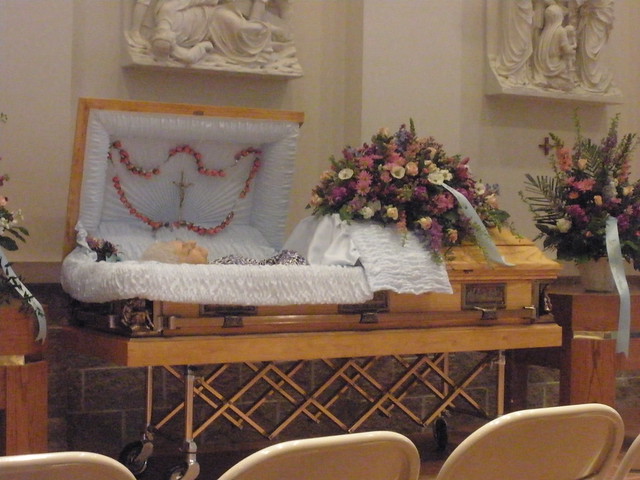
© 2011 Chris Baranski, Flickr | CC-BY | via Wylio
Today’s guest post is written by Pastor Dieter Reda:
Death has been called he great equalizer. Kings and paupers and everyone in between must die. That includes preachers and post mortem health care professionals (a.k.a. Funeral Directors). Not only must we all die eventually, but before that we also must deal with the death of one or more people that we love. And then what do we do? Do we call on another professional to serve us, or do we show how competent we are and do it ourselves?
I once knew a Funeral Director who embalmed his mother. He said it was his way of grieving, and “the last thing I could do for her”. I found that to be creepy, but who am I to judge. As a pastor I have literally “heard it all” and that was part of it.
In January of 2010 I officiated at the funeral of my mother. I know there are two schools of thought about that topic too, so let me explain. My mother was, as most good mothers are, very proud of her son . She was hugely supportive of my decision to enter the ministry, and a tremendous encouragement and support along the way. In fact one of my more difficult pastoral assignments was a church in my home town. Mom and Dad transferred their membership to that small congregation. Their desire to support their son was stronger than the desire to have a great pastor. You see, | was young, and most young professionals (in any profession) know it all. But I digress. In the time that we lived in close proximity, Mom had witnessed several funerals that I conducted, and there were a few others that she and I attended together. She would offer her commentary, which when considered together could be regarded as her final wishes. Whenever she saw a casket that she didn’t like, she would say, “don’t you dare put me in something like that”. So we didn’t. She told me more than once that she did not wish to be cremated. I assured her that we would remember to honour her wishes. And then there was a certain funeral hymn that she heard once too often. “I don’t want that sung at my funeral”. And so we didn’t. However I wasn’t above using the offensive song in a service while she was still alive. I deliberately tried to make eye contact to see which of us would lose our straight face. Her head was buried in her hymnal and i endured a hailstorm at lunch. And then came the day, with the quiet request, spoken only once, “I want you to bury me.” I said that though this is a hard request, I would do my best.
The day of her funeral came. My message was prepared. The service was led by her pastor in the church where she worshipped. The pastoral staff there had helped to plan the service, and I was glad that they were in charge. The parts that we had agreed that I would lead would be a message, as well as leading the graveside service. I know that only God could give me the strength for that difficult task. Surprisingly, someone asked me shortly after the service how I could do such a thing dry-eyed. I assured the person that I had done more than my share of crying before the service, and that there will surely be more to come. Funny isn’t it, how there is always someone who thinks they know how something could be done better?
The other school of thought on this matter is, that if one is a professional like a pastor or funeral director, one should focus on just being a son or whatever, and allow others to do the heavy lifting of the funeral. In other words: grieve, and allow people to serve you rather than having to always serve others others. There is wisdom to that, and I don’t think that I am some kind of exception. We found a way to do both: to honour my mother’s wishes and at the same time allowing her pastors to do the pastoral work. During the funeral I did not sit on the platform with the other clergy, but sat in the pew with my family, and I soaked up everything that the other pastors said and did. While she was dying, I behaved totally like a son, and not a pastor. I had stood or sat at scores of deathbeds and helped people cross the valley of the shadow, but for my mother I couldn’t do it. I am thankful for her pastors who gave her what she needed, and who came to her bedside and gave us what we needed, right after she died.
The bottom line: as professionals we are no less human than anyone else. Losing a loved one hurts, and the fact that you are a professional who deals with death day in and day out will not protect you from that pain. So don’t pretend that it does. If you are a funeral director, you will need a funeral director at that time, and if you are a pastor, you will need a pastor. That doesn’t mean that you can’t be involved with your special gifts and expertise. That can be both therapeutic and honouring to your loved one.
It has been 5 years since Mom has been gone. Not a day goes by that I don’t think of her. Sometimes, without thinking, I reach for the phone to call her, and then reality sets in once again. But looking back on it, I am glad that I did exactly what Mom wanted, both in terms of my own involvement as well as every other aspect of her funeral. My Dad saw how difficult it was, so he told me that he would not be making the request that Mom did. However, I know that I will do for him what I did for her. Now that he is 89 and suffering from cancer, that day is drawing closer, but I know I will find the strength when the time comes.
Dieter Reda has been an ordained Minister for the past 34 years and served various churches in central and western Canada. Since 2003 he is senior pastor at Mission Baptist Church in Hamilton, Ontario (Canada). His blog of pastoral musings on various issues is at www.dieterreda.com and you can follow him on Twitter @Dieterreda.
